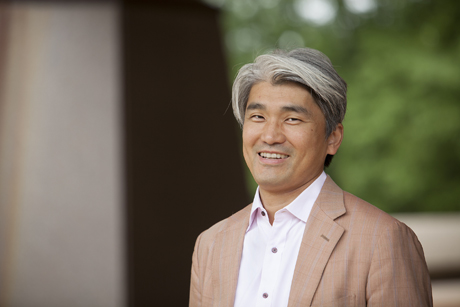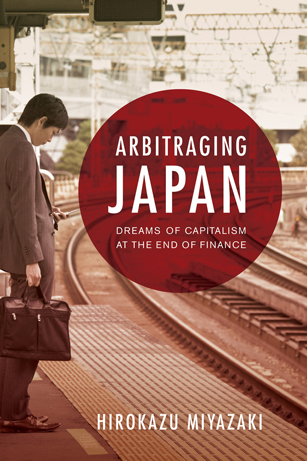Anthropologist studies unusual tribe: derivatives traders
By Kathy Hovis

Since 1998, Hirokazu Miyazaki, associate professor of anthropology, has followed an atypical collection of people for an anthropologist to study: Japanese derivatives traders.
Miyazaki, director of the East Asia Program at the Mario Einaudi Center for International Studies, recently published the book “Arbitraging Japan: Dreams of Capitalism at the End of Finance” (University of California Press), which explores changes in the career paths and philosophies of a group of traders who suffered through the Asian financial crisis and deregulation of Japanese markets in the late 1990s.
“Bankers on Wall Street and around the world have been criticized for their greed, but I’ve found that they were not just thinking about money,” Miyazaki said of the traders. “We can’t learn what’s going on unless we treat investment bankers as human beings and try to understand how they really think.”
Through years of discussion and hours spent on the trading floor, Miyazaki found that his group of Japanese traders actually had utopian beliefs about the financial products they were creating. They thought they could change people’s lives, help small companies grow and make the world a better place.
“Just like people in other careers, at times they were triumphant, at other times defeated,” he said.

Miyazaki saw that his traders also extended trading strategies, market hypotheses and financial tools like spreadsheets into other areas of their lives.
The seven traders Miyazaki followed closely (part of a larger set of 40 people involved in the research project) were all members of a small team at a securities firm that pioneered new financial products in the 1980s. The team operated without monetary incentives like bonuses or options as rewards for good work. Eventually that model failed, and the team disbanded.
This fall, Miyazaki will carry over his interests connecting finance and academics through the Einaudi Center’s Global Finance Initiative. The initiative will bring together leaders in finance, anthropology, sociology, international politics, economics and history, he said, with the goal of creating conversations about policy and change.
“It’s a good moment to argue that finance needs to be democratized,” he said. “Both sides are ready to have this conversation.”
Issues on the table for this group could include the role of central banking in the world economy and the changing role of regional centers of finance in the global economic picture. The group plans to host a summer 2014 conference at Cornell.
Miyazaki’s goal through this project and others is to “contribute to an understanding of the place of hope in knowledge formation, academic and otherwise,” he said.
He is also part of an international collaborative research project with the University of Tokyo’s Institute of Social Science and is the author of “The Method of Hope: Anthropology, Philosophy and Fijian Knowledge” (2006), published by Stanford University Press.
Kathy Hovis is a writer for the College of Arts and Sciences.
Media Contact
Get Cornell news delivered right to your inbox.
Subscribe